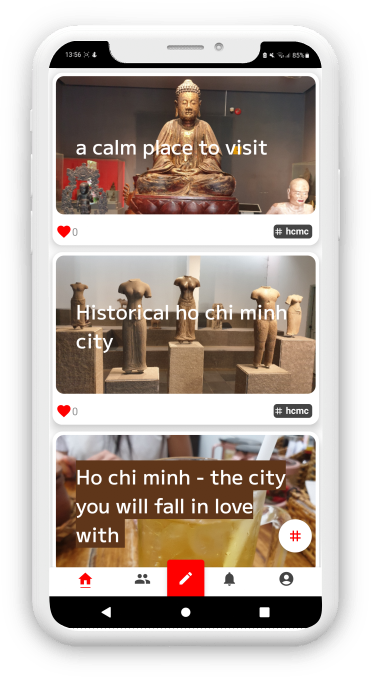 3
3
When I read books, I always discover a new viewpoint in life. The pages of a book have the power to transport me to different worlds, introduce me to diverse perspectives, and challenge my preconceived notions. Reading has become a transformative experience that has enriched my understanding of the human condition and the complexities of decision-making.
As I delve into the narratives of characters facing difficult choices, I realize that there is often no pure right or wrong answer. The decisions we make depend on a multitude of factors, including our risk tolerance, our comfort with the unknown, and our unique life experiences. This realization has been a profound one, as it has taught me to approach problems with more empathy, nuance, and an open mind.
In this blog post, I will explore how reading books has empowered me to navigate the gray areas of life, embrace uncertainty, and develop a greater appreciation for the diverse perspectives that shape our world. Through personal anecdotes and insights gleaned from the literature I've encountered, I hope to inspire others to embark on their own literary journeys and discover the transformative power of reading.
One of the most valuable lessons I've learned from reading is that there are often no clear-cut answers when it comes to decision-making. The characters I've encountered in books have faced complex dilemmas where the "right" choice is not always evident. Instead, they must weigh the potential consequences, consider their values and principles, and ultimately make a decision that aligns with their unique circumstances and personal beliefs.
Take, for example, the protagonist in Khaled Hosseini's "The Kite Runner." Amir, the narrator, must grapple with the guilt of his inaction during a traumatic event in his childhood. As he grows older and confronts the consequences of his choices, he is forced to confront the moral ambiguity of his actions and the complexities of forgiveness. The novel highlights how the decisions we make can have far-reaching and often unpredictable impacts, challenging the notion of a simple right-or-wrong answer.
Similarly, in Jhumpa Lahiri's "The Namesake," the protagonist, Gogol, struggles with his identity and the expectations placed upon him by his immigrant parents. As he navigates the tension between his Bengali heritage and his American upbringing, Gogol must make difficult choices that shape the course of his life. The novel explores the nuances of cultural identity and the ways in which our personal and familial histories can influence our decision-making process.
Another key lesson I've learned from reading is the importance of embracing uncertainty. In a world that often craves certainty and clear-cut solutions, books have taught me to be comfortable with the unknown and to approach challenges with a more open and adaptive mindset.
One book that has particularly resonated with me in this regard is Haruki Murakami's "The Wind-Up Bird Chronicle." The novel's protagonist, Toru Okada, finds himself navigating a series of mysterious and seemingly disconnected events, each of which challenges his understanding of reality. As Toru delves deeper into the narrative, he is forced to confront his own preconceptions and to embrace the uncertainty that surrounds him. The novel's exploration of the unknown and the mysterious has encouraged me to be more comfortable with the ambiguity that often accompanies life's challenges.
Similarly, in Italo Calvino's "If on a winter's night a traveler," the reader is invited to participate in a meta-narrative that questions the nature of storytelling and the boundaries between fiction and reality. The novel's constantly shifting perspectives and narrative structures mirror the unpredictability of life, reminding us that the answers we seek are not always readily available. By embracing this uncertainty, I have learned to approach problem-solving with a more flexible and adaptable mindset, allowing me to navigate the complexities of decision-making with greater ease.
Reading books has also empowered me to develop a deeper appreciation for the diverse perspectives that shape our world. By immersing myself in the narratives of characters from different cultural, socioeconomic, and historical backgrounds, I have gained a more nuanced understanding of the human experience and the factors that influence our decision-making.
One book that has been particularly impactful in this regard is Chimamanda Ngozi Adichie's "Americanah." The novel follows the journey of Ifemelu, a young Nigerian woman who moves to the United States and navigates the complexities of race, identity, and belonging. Through Ifemelu's eyes, I gained a deeper understanding of the challenges faced by immigrants and the ways in which our perceptions of the world can be shaped by our cultural upbringing and lived experiences.
Similarly, in Gabriel García Márquez's "One Hundred Years of Solitude," the reader is immersed in the rich tapestry of Colombian history and the ways in which political, social, and economic forces can shape the lives of individuals and communities. By exploring the diverse perspectives of the Buendia family and the inhabitants of Macondo, I have developed a greater appreciation for the complexities of human society and the importance of considering multiple viewpoints when faced with difficult decisions.
Reading books has also played a crucial role in fostering my empathy and compassion towards others. By stepping into the shoes of characters who face adversity, struggle with difficult choices, and navigate the complexities of the human condition, I have gained a deeper understanding of the emotional and psychological factors that influence our decision-making.
One book that has been particularly impactful in this regard is Khaled Hosseini's "A Thousand Splendid Suns." The novel follows the intertwined lives of Mariam and Laila, two Afghan women who face immense hardship and oppression under the Taliban regime. Through their stories, I gained a profound appreciation for the resilience and strength of the human spirit, as well as a deeper understanding of the challenges faced by women in societies where their rights and autonomy are severely restricted.
Similarly, in Yaa Gyasi's "Homegoing," the reader is taken on a sweeping journey through the history of Ghana and the United States, exploring the lasting impact of slavery and the intergenerational trauma that it has caused. By immersing myself in the narratives of the characters, I have developed a greater empathy for the experiences of those who have faced systemic oppression and discrimination, and a deeper commitment to advocating for social justice and equity.
Ultimately, reading books has empowered me to navigate the complexities of life with greater confidence and resilience. By encountering diverse perspectives, exploring the gray areas of decision-making, and developing a deeper understanding of the human experience, I have cultivated a more nuanced and adaptable approach to problem-solving.
One book that has been particularly influential in this regard is Madeline Miller's "Circe." The novel's protagonist, the goddess Circe, navigates a world filled with gods, mortals, and the constant interplay of power, love, and betrayal. Through Circe's journey, I gained a deeper appreciation for the complexities of human nature and the ways in which our decisions can have far-reaching consequences, both for ourselves and for those around us.
Similarly, in Colson Whitehead's "The Underground Railroad," the reader is confronted with the brutal realities of slavery and the courageous efforts of those who sought to escape its grasp. By immersing myself in the narratives of the characters, I have developed a greater understanding of the systemic injustices that have shaped our world, and a renewed commitment to working towards a more equitable and just society.
Reading books has been a transformative experience that has empowered me to navigate the complexities of life with greater confidence and resilience. By exploring the gray areas of decision-making, embracing uncertainty, and developing a deeper appreciation for diverse perspectives, I have cultivated a more nuanced and adaptable approach to problem-solving.
The narratives I've encountered have challenged my preconceptions, fostered my empathy and compassion, and inspired me to work towards a more equitable and just world. As I continue to immerse myself in the world of literature, I am confident that I will continue to discover new insights and perspectives that will enrich my understanding of the human condition and empower me to make more informed and thoughtful decisions.
In a world that often craves certainty and clear-cut solutions, reading books has taught me to embrace the ambiguity and complexity that are inherent to the human experience. By cultivating a more nuanced and adaptable mindset, I have gained the confidence to navigate the gray areas of life with greater ease and to approach challenges with a renewed sense of purpose and resilience.



 3
3

